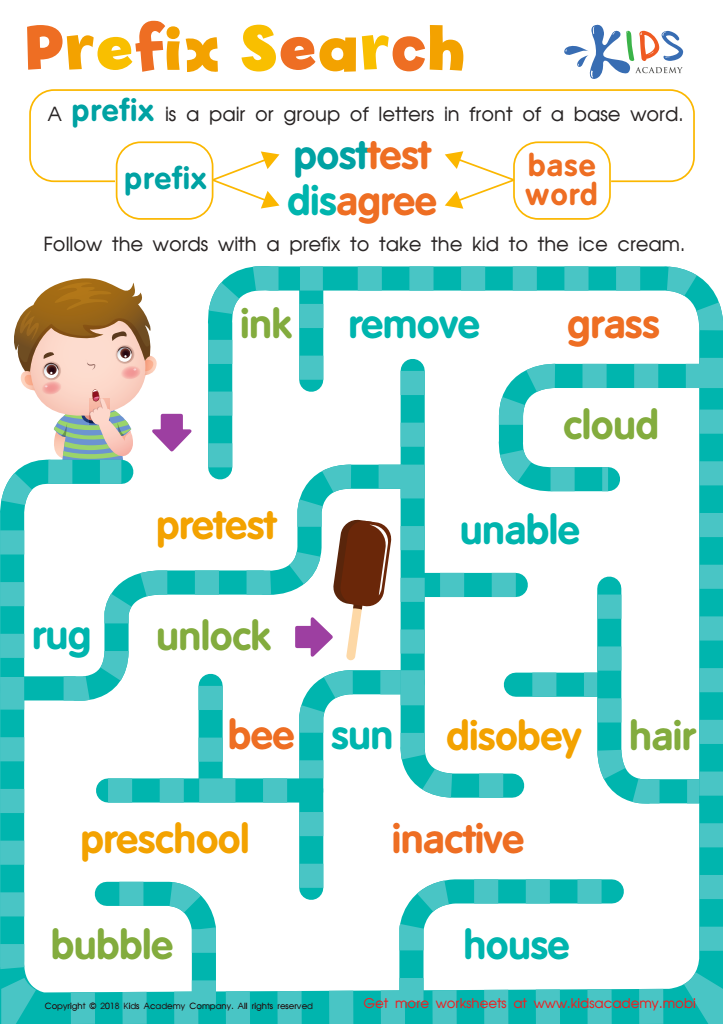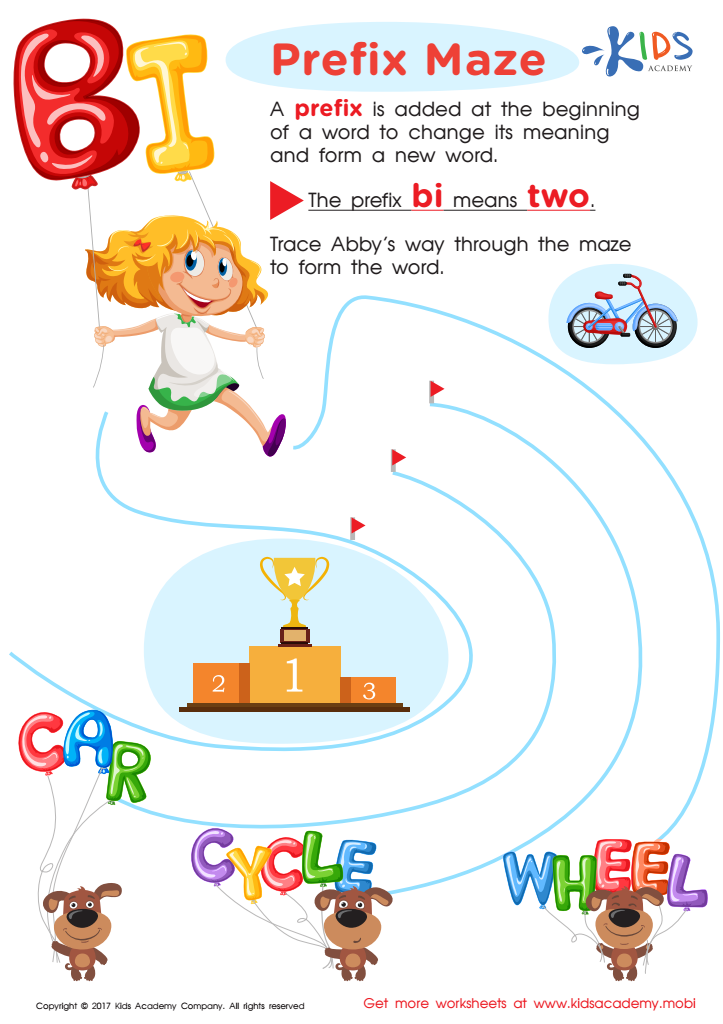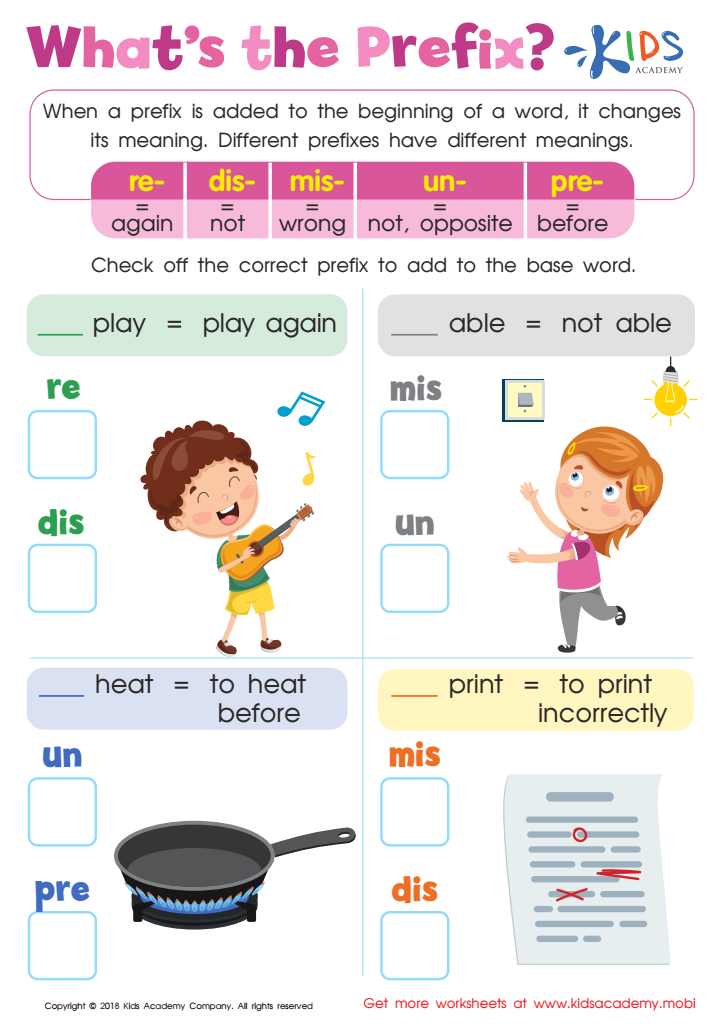Prefix understanding Worksheets for Ages 3-7
3 filtered results
-
From - To
Our engaging Prefix Understanding Worksheets for Ages 3-7 are designed to build foundational language skills in young learners. These colorful, interactive worksheets make learning fun and help children grasp the concept of prefixes in an easy and enjoyable manner. By using activities that are tailored to their developmental stage, kids can expand their vocabulary and improve their reading skills. Our carefully crafted worksheets focus on commonly used prefixes, providing plenty of practice to solidify their understanding. Perfect for teachers, parents, and tutors, these resources offer a structured way to introduce and reinforce prefix knowledge in a playful and effective way.


Reading: Prefix Search Worksheet


Prefix Bi Words Worksheet


Reading: What Is the Prefix Worksheet
Parents and teachers should care about children understanding prefixes at ages 3 to 7 because it lays the crucial foundation for language development. At this formative stage, young minds are like sponges, absorbing new information quickly. Introducing prefixes, such as "un-," "re-," and "pre-," enables early learners to grasp the concept that words can be modified to change meaning. This awareness enhances their vocabulary, aids in reading comprehension, and enables them to derive meaning from unfamiliar words.
Understanding prefixes encourages cognitive development. It teaches children to recognize patterns, an essential skill for problem-solving and critical thinking. When kids discern that "unhappy" means not happy, or "redo" means to do again, they are employing logical reasoning, reinforcing their linguistic and intellectual growth.
Additionally, early knowledge of prefixes boosts confidence in young readers. It empowers them to tackle new words, fostering a love for reading and learning. This proactive approach steers them toward academic success, as a strong vocabulary is integral across subjects, from math word problems to science reading assignments.
Finally, language skills are foundational life skills. By prioritizing prefix understanding, parents and teachers equip children with tools for effective communication, tailoring pivotal learning experiences that support their journey into proficient readers and articulate individuals.

 Assign to My Students
Assign to My Students
















